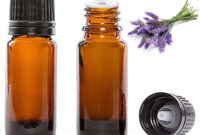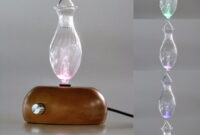Aromatherapy definition refers to the practice of using essential oils, extracted from plants, for therapeutic purposes. Its origins can be traced back to ancient civilizations, and it continues to be a popular complementary therapy today.
Essential oils are highly concentrated plant oils that contain the volatile compounds responsible for a plant’s characteristic scent. These compounds have been found to have various therapeutic properties, including calming, energizing, and pain-relieving effects.
Definition of Aromatherapy

Aromatherapy is a holistic healing practice that utilizes the natural aromatic compounds found in plants to enhance the physical, emotional, and spiritual well-being of individuals.
The term “aromatherapy” was coined by the French chemist René-Maurice Gattefossé in the early 20th century. However, the practice of using aromatic plants for therapeutic purposes has been traced back to ancient civilizations, such as the Egyptians, Greeks, and Romans.
Historical Origins and Evolution of Aromatherapy
In ancient Egypt, aromatic plants were used in religious ceremonies, embalming practices, and for medicinal purposes. The Ebers Papyrus, one of the oldest medical texts, contains recipes for various aromatic oils and ointments.
In ancient Greece, Hippocrates, the “father of medicine,” recognized the therapeutic benefits of aromatic plants and advocated their use in treating various ailments. Theophrastus, a Greek philosopher and botanist, wrote extensively about the medicinal properties of plants and their aromatic qualities.
During the Roman Empire, aromatherapy flourished as wealthy Romans used aromatic oils for bathing, massages, and perfumes. Galen, a renowned Roman physician, incorporated aromatherapy into his medical practice and wrote about the use of essential oils for treating various health conditions.
In the Middle Ages, aromatherapy continued to be practiced by herbalists and physicians, but its popularity declined during the Renaissance period. However, in the 19th century, there was a renewed interest in aromatherapy, particularly in France, where it was used to treat soldiers during World War I.
In the 20th century, aromatherapy gained wider recognition as a complementary therapy, and research began to explore its therapeutic effects. Today, aromatherapy is practiced worldwide and is recognized for its potential benefits in promoting relaxation, reducing stress, improving sleep, and alleviating various health conditions.
Essential Oils and Their Role: Aromatherapy Definition

Essential oils are concentrated plant extracts that capture the volatile compounds responsible for their characteristic scents and therapeutic properties. They play a central role in aromatherapy, offering a wide range of benefits for physical, emotional, and mental well-being.
Essential oils are obtained through various extraction methods, including:
Steam Distillation
- Steam is passed through plant material, carrying the volatile compounds into a condenser.
- The condensed vapor separates into essential oil and water, which are then separated.
Cold Pressing
- Suitable for citrus fruits, where the essential oil is contained in the peel.
- The peel is mechanically pressed to release the oil.
Solvent Extraction
- A solvent, such as ethanol, is used to dissolve the essential oils from the plant material.
- The solvent is then evaporated, leaving behind the concentrated essential oil.
Therapeutic Applications

Aromatherapy offers a range of therapeutic benefits, both physical and psychological. Its applications extend to various areas of health and well-being, promoting relaxation, alleviating stress, improving sleep quality, and providing relief from certain physical ailments.
Aromatherapy can be administered through various methods, each with its unique advantages. Inhalation, massage, and baths are some of the most common methods used.
Inhalation, Aromatherapy definition
Inhalation involves breathing in the essential oil molecules, which can be achieved through different techniques. One common method is using an aromatherapy diffuser, which disperses the oils into the air, allowing them to be inhaled.
- Benefits:Inhalation is an effective way to promote relaxation, reduce stress, and improve mood. It can also help alleviate respiratory issues, such as congestion and coughs.
- Examples:Lavender oil is known for its calming and relaxing effects, while peppermint oil can help clear congestion and boost alertness.
Safety Considerations
Aromatherapy, while generally considered safe, requires cautious use to avoid potential risks. Understanding safety precautions is crucial to ensure a positive experience.
Essential oils are highly concentrated plant extracts and should not be used undiluted. Direct application to the skin can cause irritation, allergic reactions, or sensitization. It is essential to dilute essential oils in a carrier oil, such as jojoba, coconut, or almond oil, before topical application.
Contraindications
Certain individuals should exercise caution or avoid using aromatherapy altogether:
- Pregnant women:Some essential oils, such as rosemary, clary sage, and basil, may stimulate uterine contractions and should be avoided during pregnancy.
- Individuals with epilepsy:Certain essential oils, such as rosemary, sage, and eucalyptus, may trigger seizures.
- Individuals with asthma:Some essential oils, such as eucalyptus, peppermint, and tea tree oil, may irritate the respiratory tract.
- Individuals with liver or kidney disease:Essential oils may place additional stress on these organs.
Always consult a healthcare professional before using essential oils, especially if you have any underlying health conditions or are taking medications.
Research and Evidence

A growing body of scientific studies and research supports the effectiveness of aromatherapy for various conditions.
Numerous clinical trials and experimental studies have demonstrated the therapeutic benefits of essential oils, providing evidence for their use in addressing a range of physical, emotional, and cognitive concerns.
Clinical Trials
Clinical trials involving human participants have shown promising results in the use of aromatherapy for:
- Reducing anxiety and stress
- Improving sleep quality
- Alleviating pain and inflammation
- Boosting mood and cognitive function
Experimental Studies
Experimental studies, often conducted in laboratory settings, have provided further evidence supporting the biological mechanisms underlying the therapeutic effects of essential oils:
- Antioxidant and anti-inflammatory properties
- Regulation of neurotransmitters
- Modulation of immune responses
Types of Aromatherapy
Aromatherapy is a holistic practice that utilizes essential oils for therapeutic purposes. Different types of aromatherapy cater to various settings and needs.
Clinical Aromatherapy
Clinical aromatherapy involves the therapeutic use of essential oils in healthcare settings under the guidance of trained professionals. It aims to alleviate symptoms and improve well-being in patients with specific health conditions.
Spa Aromatherapy
Spa aromatherapy focuses on relaxation and rejuvenation in a spa environment. Essential oils are incorporated into massages, facials, and other treatments to create a soothing and invigorating atmosphere.
Home Aromatherapy
Home aromatherapy involves the use of essential oils in the comfort of one’s own home. It can be used for relaxation, mood enhancement, or to address specific health concerns through diffusers, baths, or topical applications.
Applications in Different Settings
Aromatherapy finds its applications in diverse settings, contributing to well-being and creating specific ambiances.
Hospitals
- Enhancing relaxation and reducing stress for patients and staff.
- Promoting restful sleep and improving mood.
- Managing symptoms like pain, nausea, and anxiety.
Spas
- Creating a relaxing and rejuvenating atmosphere.
- Promoting relaxation and stress relief.
- Enhancing massages and body treatments.
Homes
- Creating a calming and inviting ambiance.
- Improving sleep quality and relaxation.
- Supporting stress management and mood enhancement.
Workplaces
- Boosting focus and productivity.
- Reducing stress and improving mood.
- Creating a more pleasant and invigorating work environment.
Future Trends
Aromatherapy is a constantly evolving field, with new research and advancements emerging all the time. Some of the most promising trends include:
The development of new essential oil extraction methods, such as supercritical fluid extraction and microwave-assisted extraction, which can produce higher quality and more potent oils.
Research and Development
- Continued research into the therapeutic effects of essential oils, including their potential use in treating a variety of health conditions, such as anxiety, depression, and pain.
- Development of new aromatherapy products, such as diffusers, inhalers, and topical applications, that are more effective and user-friendly.
Integration with Other Therapies
Increased integration of aromatherapy with other complementary and alternative medicine therapies, such as massage, acupuncture, and yoga, to create a more holistic approach to health and well-being.
Technological Advancements
- Development of new technologies, such as wearable devices and mobile apps, that can be used to track and monitor the use of essential oils.
- Use of artificial intelligence (AI) to personalize aromatherapy treatments based on individual needs and preferences.
Increased Accessibility
Increased accessibility of aromatherapy products and services, making them more affordable and available to a wider range of people.
Concluding Remarks
In conclusion, aromatherapy definition encompasses a holistic approach to well-being, utilizing the therapeutic properties of essential oils to promote physical, mental, and emotional health. As research continues to explore its potential benefits, aromatherapy is poised to play an increasingly significant role in modern healthcare.
Common Queries
What is the history of aromatherapy?
Aromatherapy has been practiced for centuries, with its origins in ancient Egypt, China, and India.
How are essential oils extracted?
Essential oils are extracted through various methods, including steam distillation, cold pressing, and solvent extraction.
What are the benefits of aromatherapy?
Aromatherapy has been found to have a wide range of benefits, including reducing stress, improving sleep, and alleviating pain.


